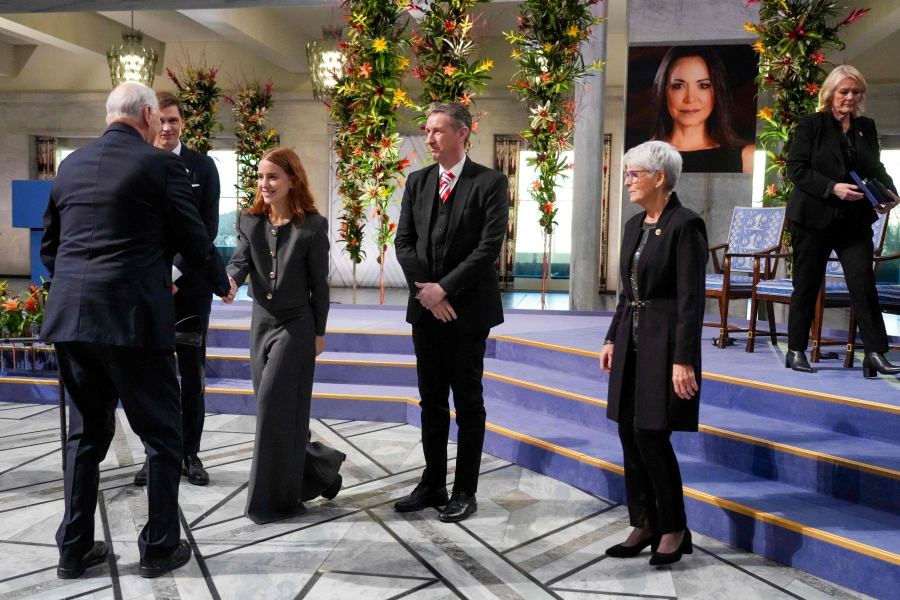KATHMANDU, Oct 15: Two of the three winners of this year’s Nobel Economics Prize have some Nepal connection.
Three eminent US-based development economists-- Abhijit Banerjee and his wife, Esther Duflo, and Michael Kremer bagged the coveted prize on Monday for their work in fighting poverty that has helped millions of children around the world. Duflo is the second woman to win the Economics Nobel.
“Their randomized controlled trial (RCT) is a scientific experiment to measure the success of any intervention -- be it in medicines, education or development,” said Dr Swarnim Wagle, former vice chair of the National Planning Commission. This method is used for the last two decades in Africa, South America and Asia including Nepal to evaluate the success of various programs.
RCT is a trail in which subjects are randomly assigned to one of the two groups -- the experimental group, which receives the intervention that is being tested, and the other is controlled group that receives an alternative or conventional treatment. The two groups are then followed up to see if there are any differences between them in outcome.
Nine Nobel Peace Prize laureates to visit Lumbini for the 4th I...

“The research conducted by the 2019 Economic Sciences Laureates has considerably improved our ability to fight global poverty. In just two decades, their new experiment-based approach has transformed development economics, which is now a flourishing field of research,” said a statement released by the Academy on Monday.
As a direct result of one of their studies, more than five million Indian children have benefitted from effective programs of remedial tutoring in schools, according to the academy.
“RCTs are the most stringent way of determining whether a cause-effect relation exists between the intervention and the outcome,” said Dr Wagle.
Their methodology has helped to break big problems into small questions and they have emphasized on the evidence-based policy formulation, added Dr Pukar Malla, the chairperson of the Governance Lab at Daayitwa, an NGO working in field of economic empowerment.
“The Banerjee couple visited Nepal five years ago upon my request and apprised top Nepali bureaucrats about the RCT method,” said Dr Wagle. “They had given a presentation on poor economics and RCT methodology to all government secretaries and the chief secretary. They are also involved in various studies conducted by ICIMOD.”
“Their work relates theory to everyday lives and it’s a positive decision,” Dr Wagle further said, adding that their researches on education, micro-credit, women’s leadership are exemplary.
Most importantly, the team is associated with the “Teaching at the right level” (TarL) program which has helped 60 million children in India and Africa and focuses on maths and reading skills for primary school pupils, according to Wagle.
Banerjee is a West Bengal-born economist, married with Dfulo, who is a former French citizen. West Bengal alone has bagged many Nobel prizes. West Bengal chief minister Mamata Banerjee was overjoyed with the announcement. “Hearty congratulations to Abhijit Banerjee, alumnus of South Point School & Presidency College Kolkata, for winning the Nobel Prize in Economics. Another Bengali has done the nation proud,” Banerjee wrote on Twitter.
So far three Bengalis have won the Nobel Prize. They are Rabindra Nath Tagore, Amartya Sen and Abhijit Benerjee.
Tuesday’s announcement of the Economics Prize wraps up the 2019 Nobel season. Only Last week, six Nobel prizes were given —medicine, physics and chemistry plus two literature awards, and the Peace Prize.



































